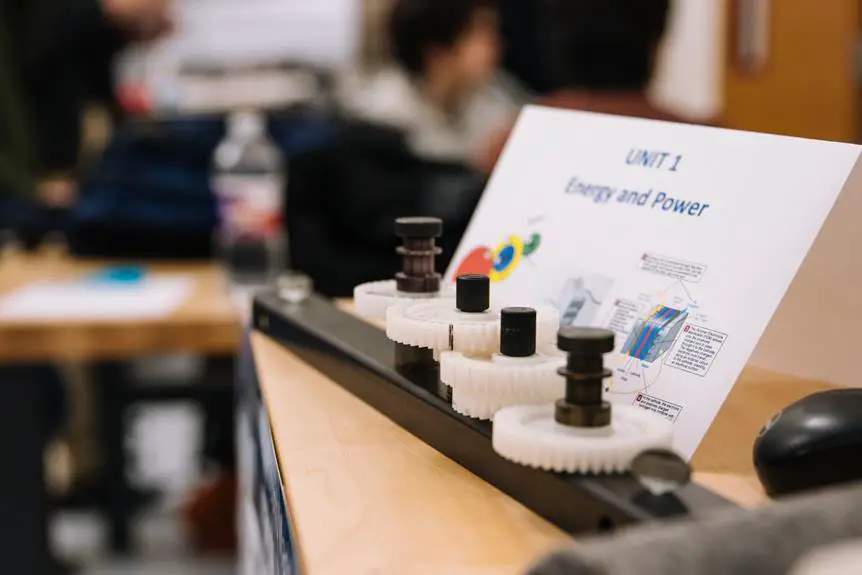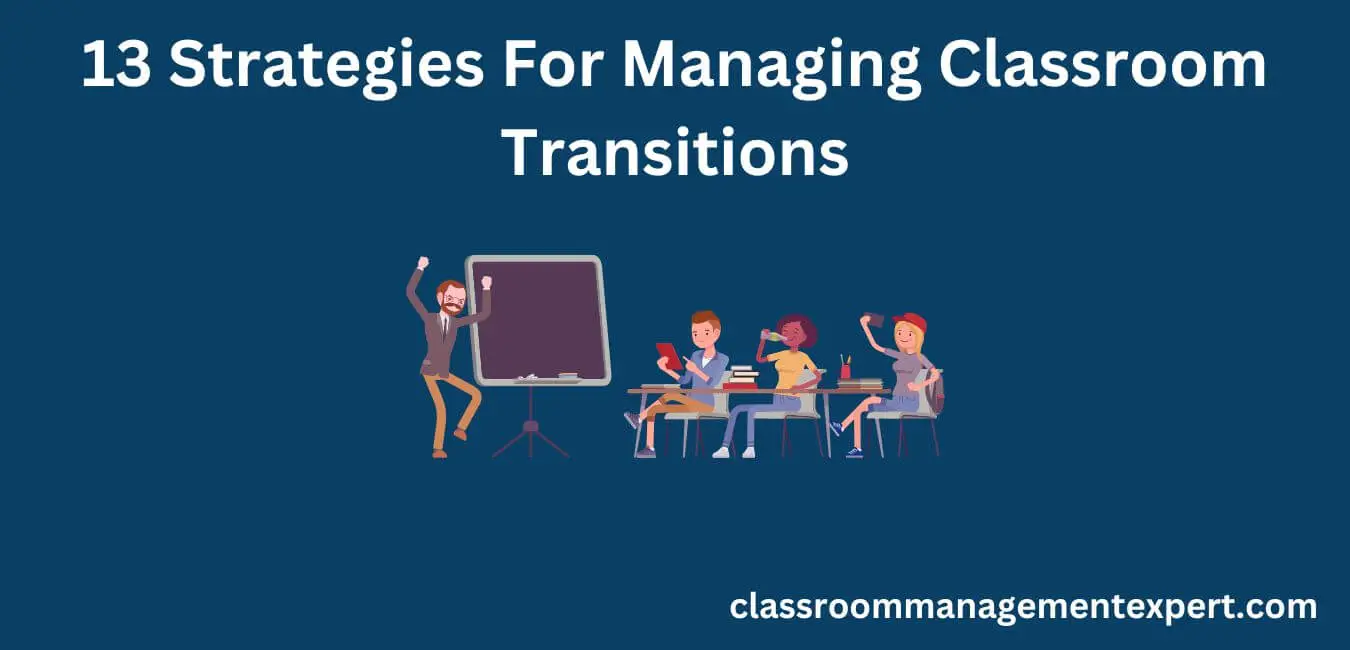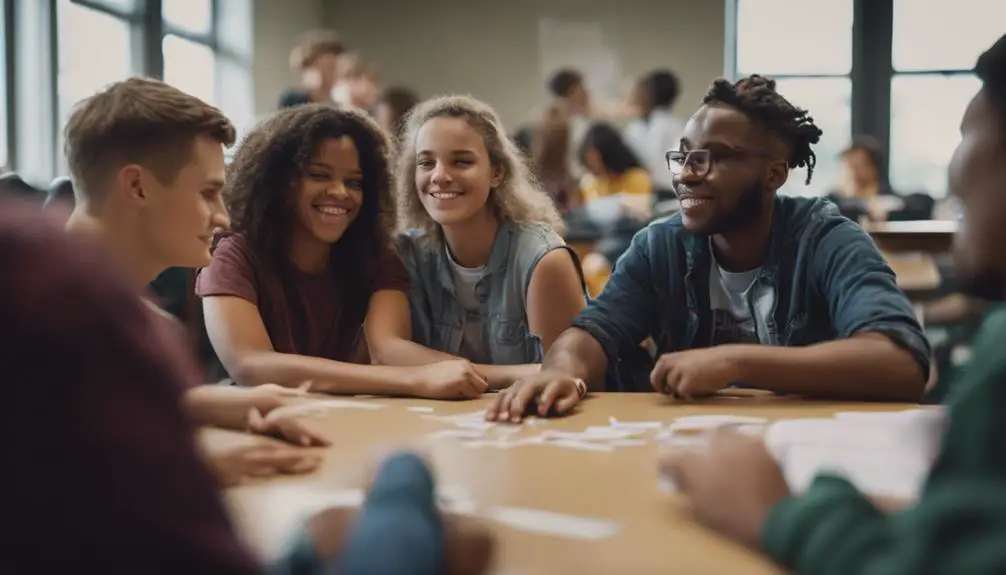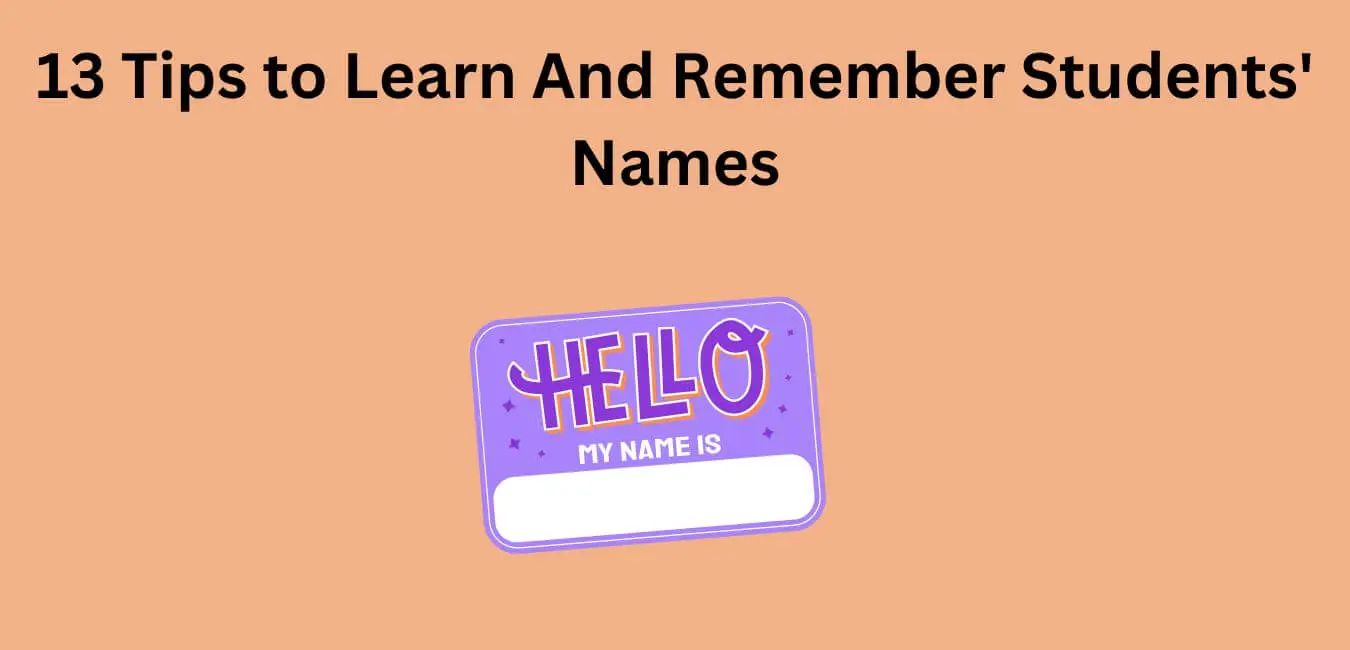Misbehavior in the classroom can have serious consequences. The goal of these consequences is to teach students about responsibility, accountability, and the importance of respectful behavior. It’s crucial to address misbehavior promptly and consistently in order to maintain a positive and productive learning environment for all students. It’s important to maintain order and discipline in order to create a conducive learning environment.
Let’s take a look at the list of consequences for misbehavior in the classroom.
List of consequences for misbehavior in the classroom
When it comes to addressing misbehavior in the classroom, several consequences can be implemented.
Some common consequences include giving a verbal warning, placing the student in a time-out, taking away privileges, assigning extra work, or assigning detention.
These consequences are important because they hold students accountable for their actions and encourage them to make better choices in the future.
Verbal Warning
As a teacher, I give verbal warnings to address misbehavior in the classroom. Verbal warnings are an important tool for maintaining discipline and promoting positive behavior. When giving verbal warnings to students, it’s crucial to use a calm and respectful tone, clearly stating the misbehavior and its consequences.
Addressing misbehavior through verbal warnings requires using clear language, focusing on the behavior rather than the student. By consistently giving verbal warnings, students understand the expectations and consequences, leading to improved behavior over time. Verbal warnings give students a chance to reflect on their actions and make better choices.
Time-out
I use time-outs as a consequence of misbehavior in the classroom. Time-outs are an effective way to address disruptive behavior and encourage positive choices. Here are some important points to consider:
- Effective implementation: Use time-outs consistently and fairly, making sure students understand the expectations and consequences.
- Alternatives to time out: While time-outs can be effective, it’s important to also explore other strategies like positive reinforcement, peer mediation, or problem-solving discussions.
- Impact on student behavior: Time-outs give students a chance to reflect on their actions and make better choices in the future.
- Time-out duration: The length of a time-out should be reasonable and age-appropriate, allowing students to calm down and reflect on their behavior without disengaging from the learning environment.
- Parent involvement: Communicate with parents about the use of time-outs and involve them in the disciplinary process to ensure consistency and support at home.
Loss of Privileges
Moving on from time-outs as a consequence of misbehavior in the classroom, another effective disciplinary measure is implementing loss of privileges.
When students lose their privileges, it can significantly impact their behavior. They begin to understand the consequences of their actions and learn to make better choices.
However, it’s important to consider alternative consequences and maintain open communication. By talking to students and understanding their needs, we can address the root cause of their actions and provide appropriate support.
Additionally, creating a positive classroom environment that promotes respect and cooperation can help prevent misbehavior.
Striking a balance between consequences and support is crucial to ensure that students learn from their mistakes while still feeling supported and valued in the classroom.
Extra Assignment
Implementing an additional assignment can be an effective consequence for misbehavior in the classroom. It not only provides a way for students to reflect on their actions but also offers an opportunity for growth and learning. Here are some important points to consider:
- Benefits of additional assignments:
- Encourages responsibility and accountability
- Reinforces lessons and concepts
- Builds critical thinking skills
- Promotes self-discipline and time management
- Fosters a positive work ethic
- Effective ways to assign extra work:
- Clearly communicate expectations and objectives
- Provide clear instructions and resources
- Set realistic deadlines and checkpoints
- Offer support and guidance when needed
- Provide meaningful and relevant assignments
- Alternatives to additional assignments:
- Reflective activities
- Community service projects
- Behavior contracts
- Peer mediation
- Impact of additional assignments on student behavior:
- Encourages reflection and self-awareness
- Promotes a growth mindset
- Reinforces positive behavior
- Discourages repeat offenses
- Builds a sense of responsibility and ownership
- Strategies to motivate students to complete additional assignments:
- Offer incentives or rewards
- Provide personalized feedback and recognition
- Connect assignments to real-world applications
- Foster a supportive and collaborative classroom environment
- Celebrate achievements and progress
Detention
Detention is a common consequence of misbehavior in schools, but it may not be the most effective strategy. Schools need to have clear detention policies to ensure fairness, but it’s also crucial to consider alternatives.
Detention can hurt students academically and emotionally. To address misbehavior effectively, a combination of proactive and reactive approaches should be used. This includes implementing positive reinforcement, restorative justice practices, and open communication with students.
Parent Contact
Parent contact is a valuable consequence of misbehavior in the classroom. Maintaining effective communication with parents is crucial for a positive and productive learning environment. By involving parents in the disciplinary process, we can work together to address and resolve behavioral issues.
Here are some reasons why parent contact is beneficial:
- Clear and direct communication: Contacting parents allows for straightforward communication about the misbehavior and its consequences.
- Parent involvement: Involving parents in the disciplinary process encourages their active participation in their child’s education.
- Problem-solving strategies: Collaborating with parents can lead to the development of effective strategies to address and prevent future misbehavior.
- Building positive relationships: Engaging parents in the disciplinary process helps build trust and strengthen the relationship between teachers and parents.
- Parent-teacher collaboration: Together, teachers and parents can create a supportive and nurturing learning environment for the student.
Through parent contact, we can foster collaboration and teamwork in addressing misbehavior, benefiting the student and the entire classroom community.
Apology Letter
Apology letters are a useful tool for addressing misbehavior in the classroom and teaching students important lessons about sincerity, taking responsibility, and repairing relationships. By writing an apology letter, students have the chance to express genuine remorse and reflect on the impact of their actions. Students need to understand the value of empathy and forgiveness. To make the most of apology letters, I provide students with a table that highlights effective ways to express remorse:
| Importance of Sincerity | Effective Ways to Express Remorse |
|---|---|
| Genuine feelings of regret | Using ‘I’m sorry’ and acknowledging the hurt caused |
| Taking ownership of actions | Offering to make amends or find a solution |
| Understanding the impact | Expressing a commitment to change behavior |
Apology letters not only address misbehavior but also promote personal growth and positive relationships in the classroom.
Behavior Contract
Consequences for misbehavior in the classroom can be set up through a behavior contract, which outlines specific actions and their corresponding penalties. Behavior contracts have several benefits in promoting positive behavior and creating a structured learning environment.
They can be implemented effectively by clearly defining expectations, consequences, and rewards. Restorative practices and individualized behavior plans are alternatives to behavior contracts.
Parents play a crucial role in behavior contracts by supporting and reinforcing the agreed-upon expectations at home.
The long-term impact of behavior contracts on student behavior is significant. They help students develop self-discipline, responsibility, and accountability, leading to improved academic performance and social skills.
Reflection Time
Implementing reflection time in the classroom is an effective approach to addressing misbehavior. It allows students to reflect on their actions and understand the impact they’ve on themselves and others. By incorporating reflection time into classroom management, we can promote self-awareness, accountability, and a positive classroom culture.
Here are some strategies to encourage reflection:
- Journaling: Journaling provides an outlet for self-expression and self-reflection. It allows students to process their thoughts and emotions, leading to a deeper understanding of their behavior.
- Group discussions: Engaging in group discussions fosters empathy and understanding among peers. Students can share their perspectives, listen to others, and learn from different experiences.
- Role-playing scenarios: Role-playing scenarios help students develop problem-solving and decision-making skills. They can act out different situations and explore the consequences of their actions.
- Mindfulness exercises: Incorporating mindfulness exercises reduces stress and enhances focus. Students learn to be present in the moment, which can positively impact their behavior and interactions with others.
- Goal setting and action planning: Encouraging students to set goals and create action plans promotes personal growth and motivation. They can reflect on their behavior and identify areas for improvement, leading to positive changes.
Reflection time enhances student accountability by allowing them to take ownership of their behavior and make positive changes. It creates a safe space for students to learn from their mistakes and develop a sense of responsibility. By incorporating reflection activities into the classroom, we can create a positive environment where students feel valued and supported in their personal and academic growth.
Loss of Recess
Implementing the loss of recess is a disciplinary measure used to address misbehavior in the classroom. While it can be effective in curbing unwanted behavior, it’s important to consider the impact it may have on students.
Here are some key points to consider:
- Impact of loss of recess on student behavior: Removing recess can lead to increased restlessness and difficulty focusing in the classroom.
- Alternatives to loss of recess as a consequence for misbehavior: Instead of taking away recess, teachers can implement reflection time or assign extra academic tasks as consequences.
- The role of recess in promoting social and emotional development: Recess provides an opportunity for students to develop social skills, build relationships, and manage their emotions.
- Strategies for preventing misbehavior during recess time: Setting clear expectations, providing structured activities, and promoting positive behavior can help prevent misbehavior during recess.
- Balancing discipline and the importance of physical activity in schools: Finding a balance between discipline and allowing students to engage in physical activity is crucial for their overall development.
Loss of recess is a disciplinary measure used in classrooms to address misbehavior. While effective, it’s important to consider its impact on students. Removing recess can make students restless and less focused. Instead of this consequence, teachers can assign reflection time or extra academic tasks. Recess promotes social and emotional development, allowing students to build relationships and manage their emotions. To prevent misbehavior during recess, clear expectations, structured activities, and positive behavior promotion are key. Balancing discipline and physical activity is crucial for students’ overall development.
Restitution Activity
When addressing misbehavior in the classroom, one effective approach is to assign a restitution activity as a consequence. Restitution activities are part of restorative justice practices, which aim to create a culture of accountability and foster positive relationships among students.
These activities require the student to take responsibility for their actions and make amends for any harm caused. Restitution activities go beyond simply punishing the student; they provide an opportunity for reflection, growth, and learning.
Loss of Classroom Job
Misbehavior in the classroom can result in the loss of a classroom job, which is an important consequence. This helps students understand the significance of being accountable for their actions and the impact they’ve on the overall classroom environment.
By rotating jobs, students also learn valuable lessons about responsibility, teamwork, and leadership. Here are some important points to consider:
- Job rotation: Assigning different tasks to students helps them develop a well-rounded set of skills and promotes fairness.
- Classroom responsibilities: Each student has a role to play in maintaining a positive learning atmosphere.
- Task delegation: By assigning specific tasks, students learn the importance of completing their responsibilities.
- Student leadership: Classroom jobs provide opportunities for students to take on leadership roles and develop crucial skills.
- Classroom management: Losing a job serves as a consequence for misbehavior, reinforcing the importance of following rules and respecting others.
Conference With Counselor
Consequences for misbehavior in the classroom can result in a conference with the counselor to discuss the behavior and find ways to improve.
When meeting with a counselor, students should have coping strategies to help them handle the conversation. Strategies like taking deep breaths, using positive self-talk, and focusing on solutions can be beneficial.
It’s important to communicate effectively during a counselor conference, which includes active listening and expressing oneself respectfully. Building a positive relationship with the school counselor is crucial for establishing open communication and trust.
Students should feel comfortable sharing their emotional concerns during these conferences, as it can help everyone understand their behavior better.
Lastly, setting goals and finding solutions together is an essential part of a counselor conference, as it allows students to take responsibility for their actions and work towards improvement.
Loss of Participation Points
During a meeting with the counselor, misbehavior in the classroom can result in the loss of participation points. This can greatly impact student engagement since participation points are often connected to activities that encourage active learning and student involvement.
However, it’s important to consider alternatives to participation points that can still promote positive behavior and engagement. One alternative could be implementing a reward system based on individual effort and improvement.
Effective communication also plays a crucial role in addressing misbehavior. By openly and honestly communicating with students, educators can gain insight into the underlying causes of misbehavior and work towards finding appropriate solutions.
It’s also important to recognize the potential effects of losing participation points on academic performance. Students who consistently lose participation points may become disengaged, leading to a decline in their overall performance.
Therefore, strategies for fostering positive behavior in the classroom, such as creating a supportive and inclusive environment, setting clear expectations, and offering meaningful incentives, are vital for establishing a conducive learning environment.
Peer Mediation
Peer mediation is an effective approach to addressing misbehavior in the classroom and promoting positive behavior among students. It involves conflict resolution facilitated by trained students, providing peer support, and fostering a sense of community. By engaging in this process, students develop essential communication skills, problem-solving strategies, and empathy towards others.
To visualize the impact of peer mediation, let’s consider a table:
| Benefits of Peer Mediation |
|---|
| 1. Conflict resolution |
| 2. Peer support |
| 3. Communication skills |
| 4. Problem-solving strategies |
| 5. Building empathy |
This table highlights the positive outcomes that can be achieved through peer mediation. By empowering students to resolve conflicts and support one another, it cultivates an environment of understanding and cooperation. Through active participation in peer mediation, students learn the value of effective communication and gain essential problem-solving skills, all while building empathy toward their peers. Peer mediation not only addresses misbehavior but also encourages personal growth and fosters a more harmonious classroom.
Loss of Computer Time
When students misbehave in the classroom, one effective consequence to consider is the loss of computer time. However, it’s important to balance discipline with the value of technology in education. In this article, we’ll explore the impact of reduced computer time, strategies to prevent the need for this consequence, alternatives to the loss of computer time, and the importance of parental involvement in addressing misbehavior related to computer use.
Reduced computer time can harm student learning. Students miss out on valuable opportunities to enhance their technological skills and engage in interactive learning experiences. Therefore, it’s essential to implement clear expectations and rules for computer use. By providing guidance on responsible digital citizenship and offering alternatives to computer-based activities, students can better understand the importance of appropriate behavior.
Instead of simply losing computer time, teachers have alternative ways to address misbehavior. They can assign additional assignments or tasks related to the subject matter, provide extra support or intervention, or involve students in reflective discussions. These strategies not only address the misbehavior but also provide opportunities for growth and learning.
While discipline is necessary, it’s crucial to strike a balance between enforcing consequences and recognizing the value of technology in the classroom. Technology plays an integral role in education, and it shouldn’t be completely withheld as a punishment. By finding a middle ground, teachers can maintain discipline while still allowing students to benefit from technology.
Collaboration with parents is essential in addressing misbehavior related to computer use. Parents can reinforce expectations at home and support the strategies implemented by teachers to promote positive behavior in the classroom. By working together, teachers and parents can create a consistent and supportive environment for students.
Community Service
Assigning community service tasks can be an effective consequence of addressing misbehavior in the classroom. Community service not only teaches responsibility and accountability but also allows students to make a positive impact on their community.
Volunteering offers numerous benefits, such as developing empathy, compassion, and valuable life skills. When students engage in community service, they learn to appreciate the needs of others and actively contribute to society.
There are various types of community service projects that students can participate in, including working at homeless shelters, volunteering at local hospitals, or organizing environmental clean-up projects. These projects not only give students a chance to give back but also fill them with a sense of pride and fulfillment in their accomplishments.
Loss of Field Trip
Misbehavior in the classroom can result in the loss of a field trip opportunity. This can significantly impact student learning as field trips provide valuable hands-on experiences that enhance understanding and make learning more engaging.
However, when misbehavior occurs, alternative learning experiences can be explored to ensure that students still have meaningful opportunities.
It’s crucial to communicate with parents about the consequences of misbehavior to keep them informed and involved in their child’s education.
Additionally, fostering a positive classroom culture can help prevent misbehavior by promoting a sense of belonging and respect among students.
Lastly, addressing misbehavior consistently and fairly is essential for maintaining a positive and productive learning environment.
Teacher-Student Conference
Moving on from the consequences of losing a field trip, let’s discuss the importance of teacher-student conferences when addressing misbehavior in the classroom. These conferences are crucial because they allow both the teacher and student to express their concerns and perspectives. Effective communication is key.
Building rapport with students is essential to establish a positive and trusting relationship. This encourages open dialogue and understanding during conferences. Conflict resolution strategies can be employed to promote peaceful resolutions and teach students valuable skills for resolving conflicts in the future.
During these conferences, it’s important for the teacher to actively listen and truly understand the student’s point of view. This helps address their needs effectively. To ensure everyone is on the same page, it’s helpful to establish clear expectations beforehand, so that both the teacher and student are aware of the desired outcomes.
Loss of Free Time
Implementing the loss of free time as a consequence is a common way to address misbehavior in the classroom and teach students about responsible behavior. When students understand that their actions have consequences, it encourages them to reflect on their behavior and make positive changes. Here are some important points to consider when using the loss of free time as a consequence:
- Time management strategies: Encourage students to effectively manage their time to avoid losing free time.
- Alternative discipline methods: Explore different approaches to discipline that promote growth and understanding.
- Impact of losing free time on student behavior: Understand how the loss of free time can influence student behavior and encourage self-reflection.
- Communicating consequences effectively: Clearly communicate the reasons for the loss of free time and provide opportunities for students to learn from their mistakes.
- Balancing discipline and positive reinforcement: Find a balance between disciplining students and providing positive reinforcement to support them in making better choices.
Loss of Classroom Materials
Implementing consequences for misbehavior in the classroom, like losing classroom materials, can effectively teach students about responsibility and the consequences of their actions. When students are careless with their materials, it disrupts the learning environment and hampers their own learning experience.
By holding students accountable for their behavior and the resulting consequences, they learn the importance of taking care of their materials and respecting the resources provided to them. This also helps strengthen the teacher-student relationship as students understand that their actions have consequences and that the teacher is there to guide and support them in their growth.
Additionally, consistent discipline strategies in the classroom promote a positive and productive learning environment where students can thrive and reach their full potential.
Loss of Classroom Privileges
When students consistently misbehave in the classroom, the loss of classroom privileges can be an effective consequence. This consequence helps reinforce the importance of responsible behavior and maintains a positive learning environment.
It’s important to implement alternative consequences that address the misbehavior and provide an opportunity for growth and learning. Classroom behavior management requires discipline strategies that promote self-reflection and accountability.
By taking away privileges such as using personal electronic devices, participating in class discussions, or engaging in group activities, students can see the direct impact of their actions on their own learning experience. This consequence encourages students to reflect on their behavior and make better choices in the future.
Classroom management techniques that incorporate the loss of privileges are crucial for fostering a respectful and productive learning environment.
Loss of Special Activities
Misbehavior in the classroom can lead to the loss of special activities, which can have a significant impact on student engagement and overall classroom morale.
Special activities, such as field trips, guest speakers, or class celebrations, provide meaningful ways for students to connect with the material and foster excitement and curiosity.
However, it’s important to consider alternatives to this disciplinary measure. Restorative justice approaches can be used to address misbehavior while still allowing students to participate in special activities.
By balancing consequences with support and understanding, educators can ensure that students learn from their mistakes without sacrificing valuable learning experiences.
It’s also crucial to recognize the potential long-term effects of denying students access to special activities, as it can diminish their motivation and sense of belonging within the classroom community.
Loss of Lunchtime Activities
Students who misbehave in the classroom may face the consequence of losing lunchtime activities. This consequence can have a significant impact on student behavior as it discourages future misbehavior.
However, there are alternative strategies that educators can consider instead of taking away this valuable time. Implementing reflection or restorative practices can be effective in addressing misbehavior.
It’s important to note that the loss of lunchtime activities may not be the most effective consequence for all students, so individual needs and circumstances should be taken into account.
To prevent misbehavior during lunchtime, it’s helpful to establish clear expectations and routines, provide engaging activities, and offer supportive interventions for students who consistently misbehave.
Loss of Class Rewards
Implementing consequences for misbehavior in the classroom can be an effective way to discourage future misbehavior and promote a positive learning environment.
Class rewards have a significant impact on student behavior as they provide motivation and a sense of achievement. When students know that misbehavior can result in the loss of these rewards, they’re more likely to exhibit appropriate behavior.
However, it’s important to consider alternatives to the loss of class rewards for misbehavior, such as individualized behavior plans or peer mediation.
While the loss of class rewards can be effective, it should be used in conjunction with other consequences to ensure a balanced approach.
Strategies for implementing the loss of class rewards include clear communication, consistency, and providing opportunities for students to earn back lost rewards through positive behavior.
Conclusion
When it comes to addressing misbehavior in the classroom, having a clear list of consequences is an invaluable tool.
Embracing the power of consequences in the classroom is essential for creating a nurturing environment where students can thrive and grow. By following these guidelines, we can shape the future of our classrooms and empower our students to become responsible and accountable individuals.



















